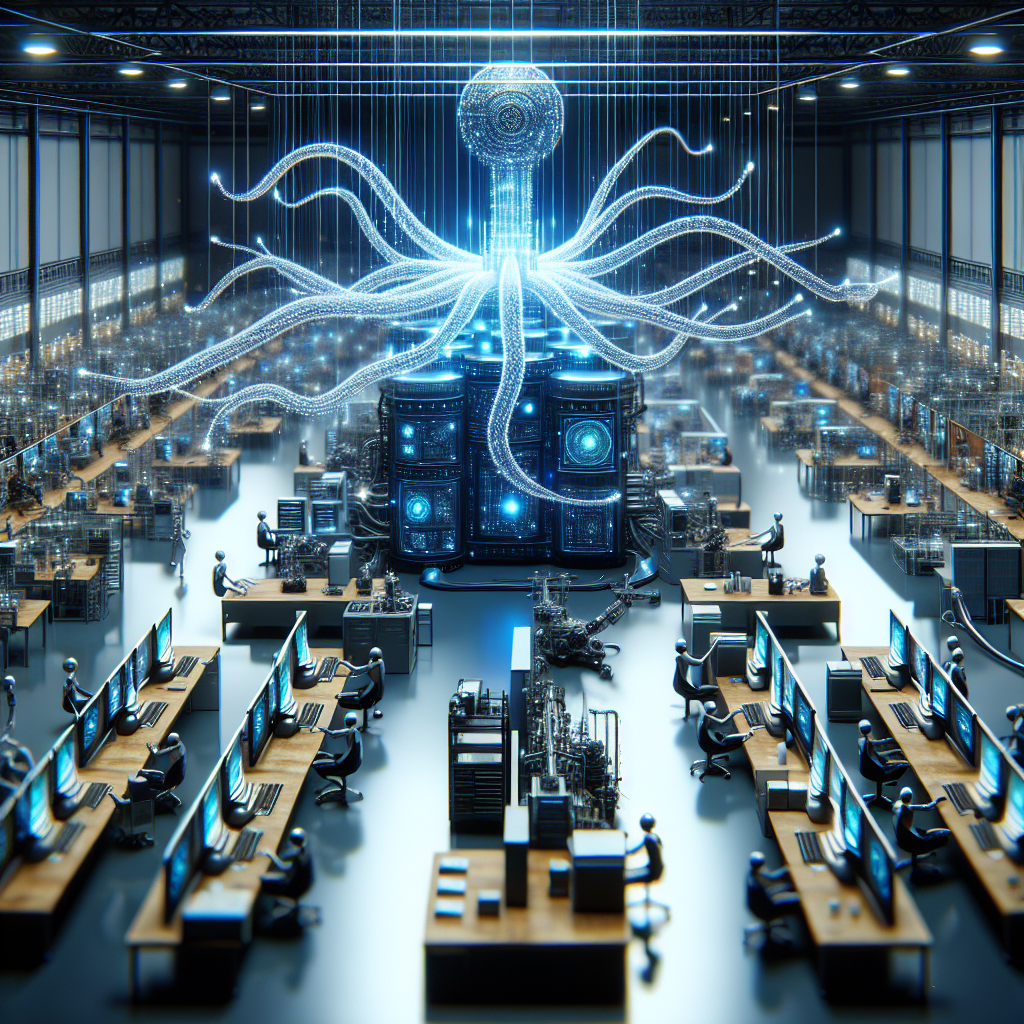The Impact of AI on Job Automation
Artificial Intelligence (AI) has been a hot topic in recent years with advancements in technology rapidly changing the landscape of various industries. One major area where AI is having a significant impact is in job automation. As AI technology continues to evolve, many fear that it will lead to widespread job loss as machines become more efficient at performing tasks traditionally done by humans. In this article, we will explore the impact of AI on job automation and discuss the potential implications for the workforce.
The Rise of AI in the Workplace
AI technology has the ability to perform tasks that were once thought to be exclusive to humans. This includes tasks such as data analysis, pattern recognition, and even decision-making. As a result, AI has been increasingly integrated into various industries to improve efficiency and productivity. In fact, a study by McKinsey Global Institute found that up to 45% of tasks currently performed by humans could be automated using existing technology.
The use of AI in the workplace has led to the automation of many routine and repetitive tasks, such as data entry and customer service. This has enabled companies to streamline their operations and reduce costs. However, it has also raised concerns about the impact on jobs and the future of work.
The Impact on Jobs
The impact of AI on job automation is a complex issue with both positive and negative implications for the workforce. On one hand, AI has the potential to create new job opportunities in fields such as data science, machine learning, and AI development. These roles require specialized skills and expertise that are in high demand as companies continue to invest in AI technology.
However, the widespread adoption of AI also has the potential to displace many workers who perform routine and repetitive tasks. A report by the World Economic Forum estimated that by 2022, AI and automation could displace 75 million jobs globally. This has raised concerns about the future of work and the need for workers to adapt to the changing labor market.
The Impact on the Workforce
The impact of AI on the workforce is not limited to job displacement. AI technology also has the potential to change the nature of work itself. As machines become more proficient at performing tasks traditionally done by humans, workers may need to acquire new skills and adapt to new ways of working.
For example, the rise of AI in the workplace has led to an increased demand for workers with technical skills, such as data analysis and programming. This has created opportunities for workers to upskill and reskill in order to remain competitive in the job market. However, it has also created challenges for workers who may not have the necessary skills to adapt to the changing labor market.
FAQs
Q: Will AI replace all jobs in the future?
A: While AI has the potential to automate many routine and repetitive tasks, it is unlikely to replace all jobs in the future. AI technology is best suited for tasks that can be standardized and performed efficiently by machines. Jobs that require creativity, emotional intelligence, and human interaction are less likely to be automated by AI.
Q: How can workers prepare for the impact of AI on job automation?
A: Workers can prepare for the impact of AI on job automation by acquiring new skills and adapting to the changing labor market. This may involve upskilling in areas such as data analysis, programming, and AI development. Workers can also focus on developing skills that are less likely to be automated by AI, such as critical thinking, problem-solving, and emotional intelligence.
Q: What are the potential benefits of AI in the workplace?
A: AI technology has the potential to improve efficiency, productivity, and decision-making in the workplace. By automating routine tasks, AI can free up workers to focus on more strategic and creative work. AI can also help companies analyze large amounts of data and identify patterns and trends that would be difficult for humans to detect.
Q: What are the potential risks of AI in the workplace?
A: One potential risk of AI in the workplace is the displacement of workers who perform routine and repetitive tasks. This can lead to job loss and economic insecurity for workers who are not able to adapt to the changing labor market. There are also concerns about the ethical implications of AI, such as bias in algorithms and the impact on privacy and security.
In conclusion, the impact of AI on job automation is a complex issue with both positive and negative implications for the workforce. While AI has the potential to create new job opportunities and improve efficiency in the workplace, it also has the potential to displace workers and change the nature of work itself. It is important for workers to adapt to the changing labor market by acquiring new skills and preparing for the impact of AI on job automation. By understanding the potential benefits and risks of AI in the workplace, workers can better navigate the challenges and opportunities presented by this rapidly evolving technology.

